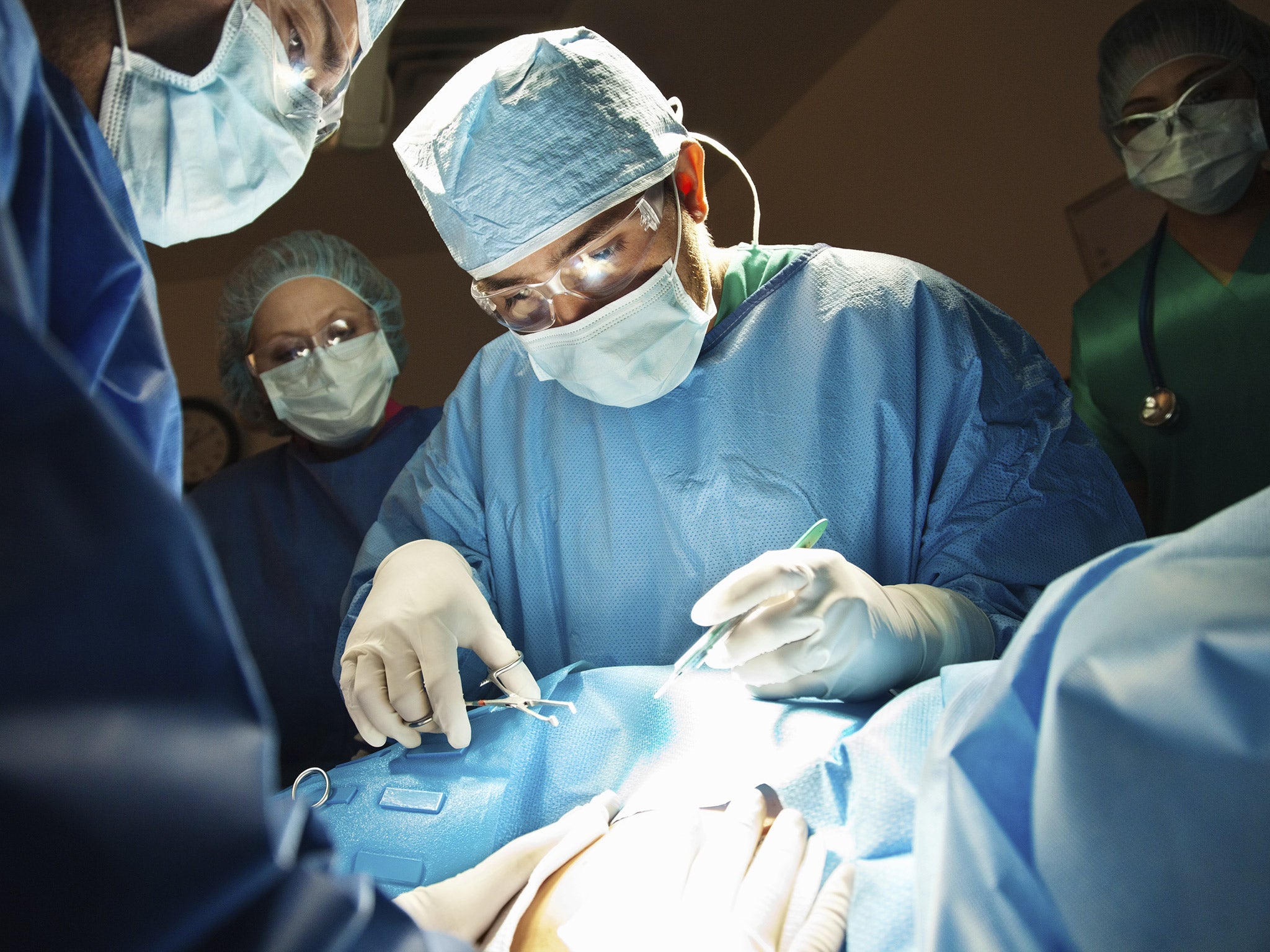'Medically unnecessary' c-sections double in UK as major study warns of global overuse
Doctors should 'only intervene in this way when it is medically required,' report states

Medically unnecessary caesarean births have more than doubled in the UK in the past 15 years, according to an international study which warns mothers are being put at risk by over use.
While women in low income or more isolated regions are still unable to access this life-saving intervention, it is increasingly being used without robust medical justification in wealthier parts of the world, the experts warned.
Since 2000 the proportion of births by C-section has doubled globally, rising from 12 per cent to 21 per cent of all births, according to the new research published in The Lancet medical journal.
But medical experts estimate that only between 10 and 15 per cent of births actually require surgical intervention, to avoid complications which put the baby or mother at risk.
In the UK, the caesarean birth rate rose from 19.7 per cent of births in 2000 to 26.2 per cent by 2015 – slightly below the Western European average.
The rise sparked guidance from the Royal College of Obstetricians and Gynaecologist in September warning new parents that the operation increases the risk rare but serious complications in later pregnancies.
The issue is even more pronounced in North America, where 32 per cent of births are by caesarean and in Latin America and the Caribbean where 44.3 per cent of births are surgically assisted.
In developing countries, national averages mark large socioeconomic variations, there is a six fold variation in C-section rates between provinces in China – 62 per cent compared to 4 per cent.
“Pregnancy and labour are normal processes, which occur safely in most cases,” the lead author of The Lancet report Dr Marleen Temmerman of Ghent University in Belgium, and Aga Khan University Kenya.
“The large increases in C-section use – mostly in richer settings for non-medical purposes – are concerning because of the associated risks for women and children. C-sections can create complications and side effects for mothers and babies, and we call on healthcare professionals, hospitals, funders, women and families to only intervene in this way when it is medically required.”
Maternal death and disability rates are higher with C-sections, and the procedure increases recovery time and health service costs and may also increase chances of conditions like asthma.
But women who have previously experienced a traumatic vaginal birth may face serious anxiety at the prospect of childbirth, while others may have similar aversions to the pain and pelvic complications that can lead to incontinence and sexual issues.
The positive birth movement
Show all 5The Lancet report suggests that these aversions are not the major driver of the rise which is largely down to better access to specialist maternity services, but it is a growing factor.
NHS guidance says women have the right to request a caesarean but also says doctors are within their rights to refuse to perform them when they’re not deemed medically necessary.
This has led to reports of some mothers being denied a choice and put through unnecessary stress.
The findings were presented at a meeting of the International Federation of Gynecology and Obstetrics (FIGO), which has a position paper with six recommendations for tackling the rise but it warns this will not be easy.
“Worldwide there is an alarming increase in caesarean section rates,” said Professor Gerard Visser, chair of FIGO’s Safe Motherhood committee.
“The medical profession on its own cannot reverse this trend. Joint actions with governmental bodies, the health care insurance industry, and women’s groups are urgently needed to stop unnecessary caesarean sections and enable women and families to be confident of receiving the most appropriate obstetric care for their individual circumstances.”
Mandy Forrester, head of quality and standards at the Royal College of Midwives, said: “There will always be women who for medical reasons need a caesarean, but there are many, as this research shows, which are not needed. What is crucial is that women are aware of the potential complications of having a caesarean section in the short and long term.”
Subscribe to Independent Premium to bookmark this article
Want to bookmark your favourite articles and stories to read or reference later? Start your Independent Premium subscription today.

Join our commenting forum
Join thought-provoking conversations, follow other Independent readers and see their replies